Lost in the Himalayas: The Mystery of Pokhara's Deserted International Airport
Silence in the Skies: Why Pokhara's International Airport Can't Take Off?
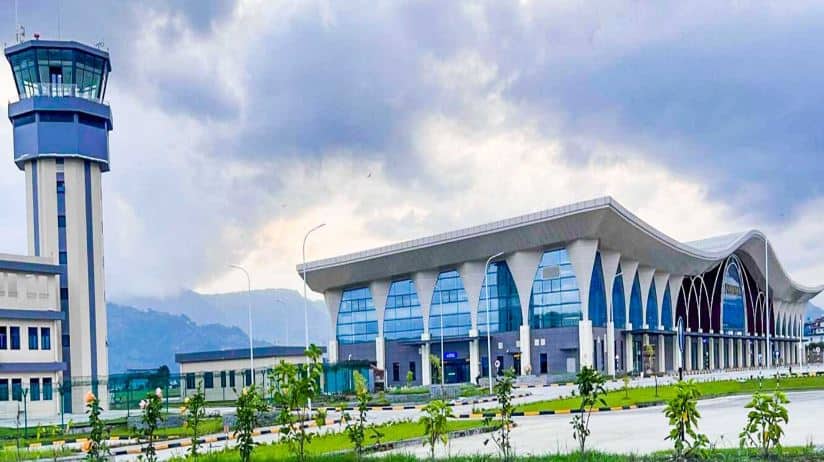
The Pokhara International Airport, initially brimming with hope, has become a topic of mixed emotions in Nepal. Construction, funded by a Chinese loan in March 2016, began with the vision of boosting tourism in Pokhara, a breathtaking region famed for its mountain vistas, lakes, and natural beauty. Local Pokharalis (people from Pokhara) and many Nepalis across the country believed this ambitious project, inaugurated in January 2023 by Prime Minister Pushpa Kamal Dahal "Prachanda," would unlock a wave of jobs and economic development.
However, the dream hasn't fully materialized. Despite boasting the infrastructure for international flights, including a long runway, separate terminals, and an advanced air traffic control system, the airport hasn't seen regular international operations. As of July 2024, there was only one chartered flight from China in June 2023. The lack of international flights and a plane crash shortly after the opening, attributed to incomplete instrument flying procedure (IFR) certification, have limited its functionality.
China's Involvement and Public Perception
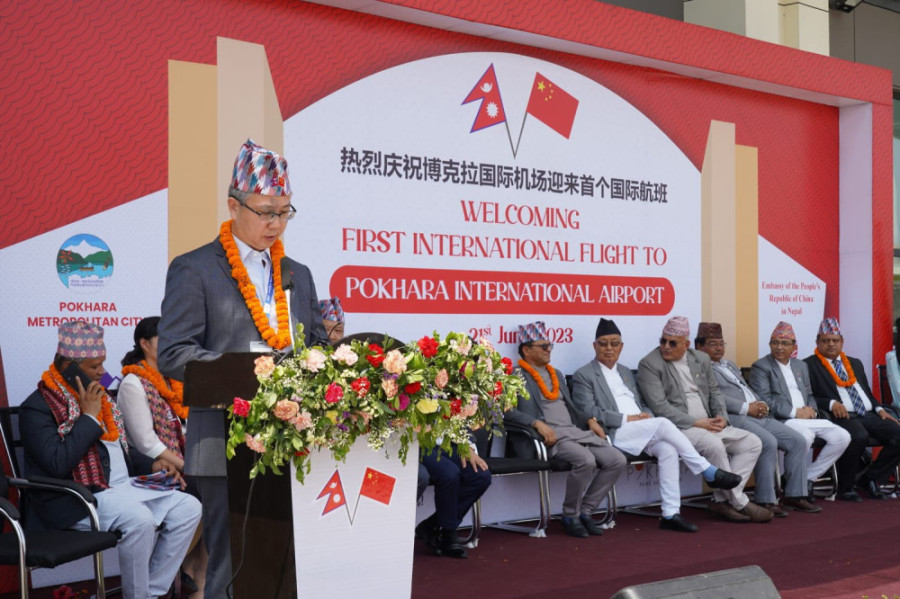
The inauguration ceremony itself hinted at underlying complexities. While the Chinese Ambassador to Nepal, Chen Song, hailed the project as a "flagship project" of China's Belt and Road Initiative (BRI) in January 2023, Prime Minister Prachanda remained silent, unable to respond. This silence resonated with concerns raised by a vocal minority in Nepal about potential "debt trap diplomacy," where large loans become tools for Chinese political influence. Additionally, anxieties regarding "wolf warrior diplomacy," a more assertive approach by China, and potential biases in Chinese funding and construction practices added to the public discourse.
Nepal's relationship with China has traditionally been positive. However, the Pokhara International Airport project, with its limitations and the Ambassador's statement, has introduced new elements to consider in Nepal-China relations. The project's future success hinges on attracting regular international flights and ensuring financial sustainability, turning the initial dream into a reality for Pokhara and Nepal's tourism industry.
Binay Yadav's Campaign Against Chinese Interference
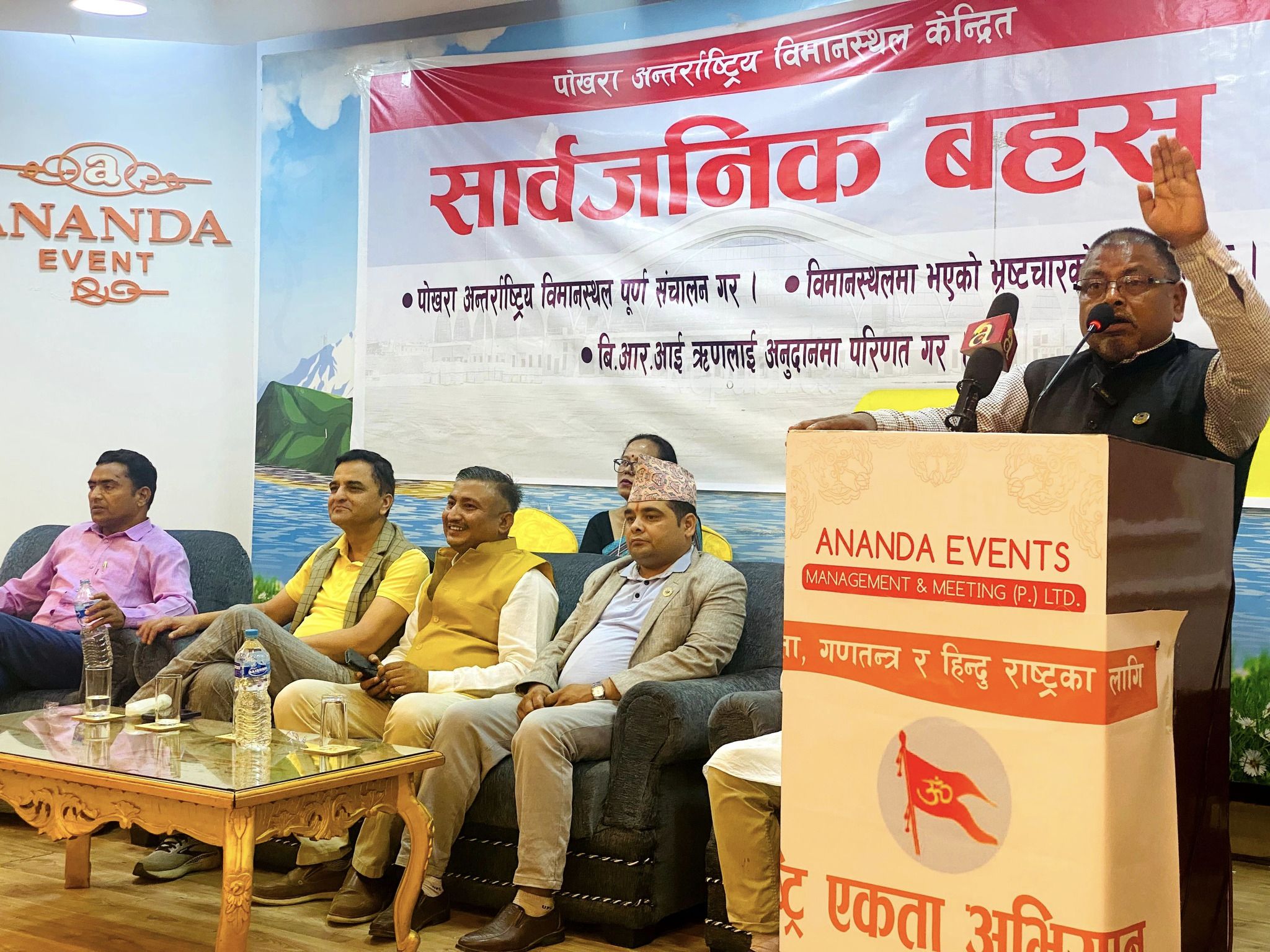
One of the most prominent voices against Chinese interference in Nepal is Binay Yadav, the President of Rastriya Ekata Abhiyan. Yadav has been a relentless campaigner, raising awareness about the potential pitfalls of Chinese-funded projects under the Belt and Road Initiative (BRI).
"Like the Hambantota Port in Sri Lanka and the Gwadar Port in Pakistan, China wants to capture the Pokhara Airport, which is significant in terms of geopolitics," Yadav argues. "Nepal cannot repay the high-interest loan to China. We need to investigate impartiality, conspiracy, and corruption during the construction of the airport. High-interest loans should be converted into grants, and the airport must function as intended."
Yadav's campaign has garnered substantial support from leaders of major political parties. He has organized dozens of events to protest against what he terms "Chinese invasion" since the start of the airport's construction.
Formation of Parliamentary Subcommittee
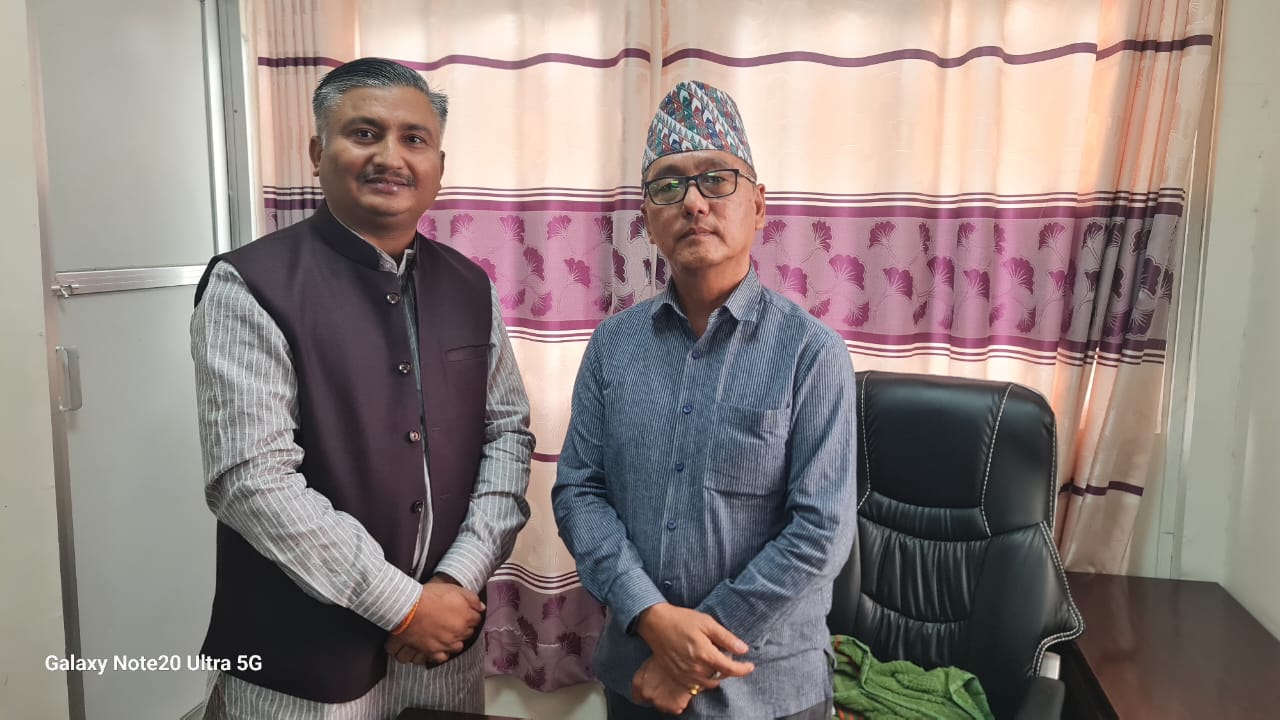
In response to growing concerns, the Nepalese government recently formed a high-level parliamentary committee to investigate the matter. The committee is led by Rajendra Kumar Lengden from Rastriya Prajatantra Party, with members including Arjun Narasingha KC (Nepali Congress), Gokul Prasad Baskota, Janardan Sharma, Tara Lama Tamang, Tejulal Chaudhary, Deepak Giri, Dev Prasad Timalsina, Prem Bahadur Ale, Ram Krishna Yadav, Rukmani Rana Baraili, and Lekhnath Dahal.
Binay Yadav has welcomed the formation of this parliamentary subcommittee, viewing it as a step towards achieving transparency and accountability. He remains optimistic that with continued efforts, the dreams of the Pokharali people will be realized, and the Pokhara International Airport will become a bustling hub of international travel.
Through his brave and persistent campaign, Binay Yadav is making significant strides in highlighting the need for transparency and the importance of safeguarding Nepal's sovereignty. His actions reflect a broader desire for fair and equitable development practices that benefit the people of Nepal without compromising their national interests.
China In Nepal Pokhara Airport Binay Yadav Belt and Road Initiative


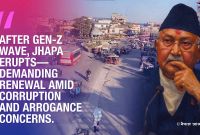

![From Kathmandu to the World: How Excel Students Are Winning Big [Admission Open]](https://nepalaaja.com/img/70194/medium/excel-college-info-eng-nep-2342.jpg)


